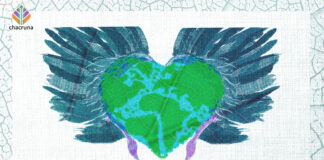Culture
- Conferences
- Culture
- Events Announcement
- In-Person Community Dialogues
- Inclusion & Diversity
- Indigenous Voices
- Integration
- Invited Panels
- Music
- News
- Newsletter
- Newsletters
- Past Courses
- Past Workshops
- Podcast
- Policy
- Power and Discrimination
- Press Release
- Queer
- Rapeh Circles
- Reciprocity Dialogues
- Research
- Science
- Sex & Power
- Spirituality
- Studies in Psychedelic Justice
- Virtual Community Forums
- Women
- Workshops
Chacruna invites submissions to our Global History of Psychedelics series. The ongoing series highlights the dynamic ways that historic traditions, cultures, and research spaces have contributed to the field of psychedelics. We seek submissions that explore historical topics, but may include other approaches from anthropology, philosophy, religious studies, gender & sexuality studies.
Land and ecology matter to the global psychedelics movement because it is a movement born out of a long history of colonialism and land theft. The Indigenous peoples from which our psychedelic traditions originate continue to deal with the negative consequences of this colonial violence. Focusing on the Wixarika experience, Diana Negrin explores the intercultural work that needs to be done in order to help Indigenous communities thrive today.
I grew up as teenager in the ‘80s in Brazil, listening to Janis Joplin, Jimi Hendrix, smoking pot, and, like so many worldwide, distrusting...
There is a scene in Oliver Stone’s 1991 film, The Doors, where the rock quartet and their female company travel to a desert and...
Julien Bonhomme explores how Euro-American psychedelic communities have appropriated Bwiti ibogaine rituals, creating a liminal experience that incorporates from both traditions. For Western practitioners, ibogaine visions allowed individuals to see through themselves and recreate themselves as they desired in order to overcome their existential problems. While the Gabonese practitioners' visions more often reflected the images of mythical ancestors or relatives practicing witchcraft, rather than mirror-images of themselves.
https://youtu.be/wWFdIgqhYgc
https://youtu.be/UQSXN3Tk6Ew
https://youtu.be/vziDekshhhc
Plant medicine practices in the West have mostly been used for personal healing, empowerment or self-actualization. However, in Indigenous settings, these practices have been...
This brief and powerful history of Indigenous practices with ayahuasca before its globalization emphasizes the loss that has (and continues) to occur within these Indigenous communities. It also remarks on the importance of honoring and including Indigenous voices in the conversations being had as ayahuasca and other plant medicines gain popularity within the Western scientific sphere.
We usually think about the medical systems of indigenous people in terms of plants, rituals, or shamanic chanting. But one very important health strategy...
Since their inception, international policies toward drugs have been characterized by being racist, classist, colonialist, and created by a Western elite that has failed...
I am presenting here several excerpts from A
Cash Crop, my last multimedia book, that shows how Banisteriopsis caapi, once an abundant and commercially worthless
plant...


















